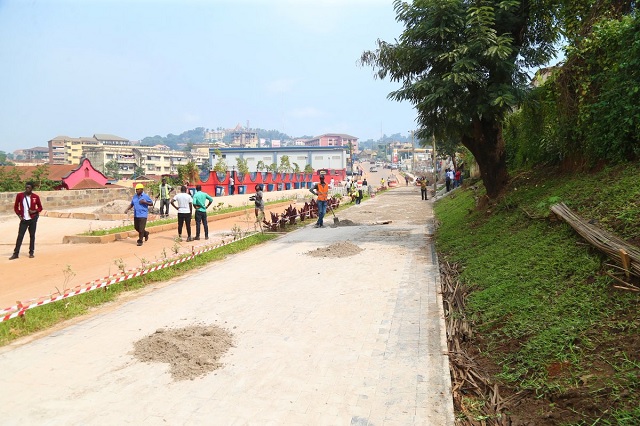
Kampala, Uganda | THE INDEPENDENT | Wakiso district authorities have turned to Kampala Capital City Authority-KCCA to seek support for the construction of roads connecting the two administrative units.
Wakiso district engineer Sam Mwesigwa notes that the district has over 536 kilometres of roads, more than half of which are strategic roads, which however remain in a poor state and in dire need of an upgrade. Mwesigwa blames the state of roads on budget shortfalls.
Out of an estimated allocation of 4.2 billion shillings, this financial year, the district received only 2.5 billion shillings. Mwesigwa now says that they have chosen to turn to KCCA for help, considering that most of the strategic roads in Wakiso are also of great significance to the city.
KCCA spokesperson Peter Kaujju notes that due to the demonstrated significance and need, KCCA has been attracted to create quality alternative routes to connect the greater Kampala and improve productivity given the fact that Wakiso district surrounds the city.
“Well, they have approached us and we as well think they are right. We all serve the same people who are always frustrated by the challenge of bad roads leading to the city. It will be of no use if we work on all city roads when the ones that lead people in the city are in poor shape,” Kaujju told Uganda Radio Network.
He further notes that KCCA is working towards supporting its neighbours including districts of Mukono, Wakiso, and its municipalities, plus Mpigi under the greater Kampala Metropolitan Physical Plan. KCCA rolled out a new planning structure of the city in 2017, hoping to, among other things, extend services to the neighbouring areas.
Under the plan, the authority in charge of the metropolitan city is supposed to plan major transportation, infrastructure among other physical development related activities with a vision of ensuring that such common services in the said areas are handled collectively.
Early this year, KCCA took over Kabuusu-Bunamwaya-Lweza road which is over 10 kilometres being constructed at an estimated cost of 97 billion Shillings financed under the second phase of the Kampala Institutional Infrastructure Development Project.
Mwesigwa explains the budget for the construction of the road is far above their five-year budget which is a justification of working closely with their ‘fairly well-off and abled’ neighbour.
******
URN
 The Independent Uganda: You get the Truth we Pay the Price
The Independent Uganda: You get the Truth we Pay the Price



